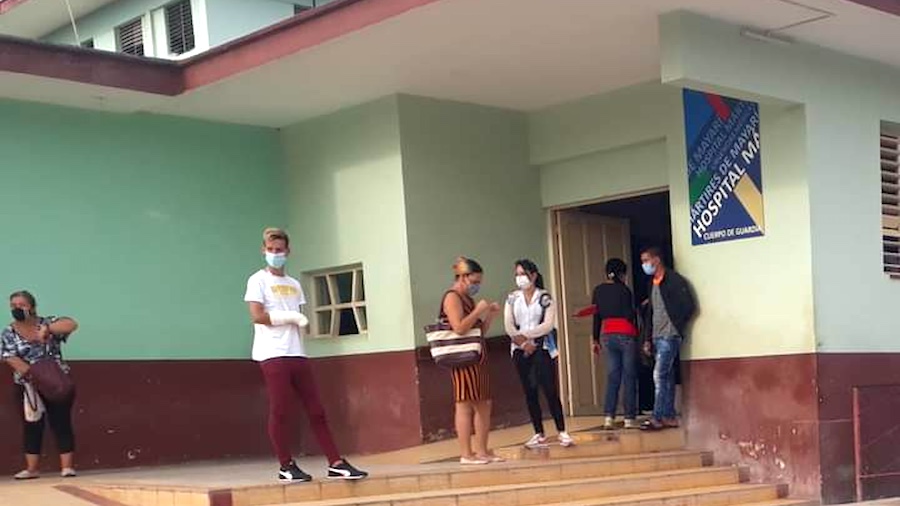In 2021, just a month before the 11-J protests, I saw a doctor cry, a member of the on-call emergency staff at the Municipal Hospital of Mayarí in Holguín when the she realized that she was going to lose a patient due to a lack of a serum that costs just a few dollars.
My entire family had been infected with Covid-19, and my father suffered the most. At 75, he was in such bad shape that he could barely stand up, and he threw up everything he ate. None had gone to the hospital, for fear of dying there, as happened to so many people, nor were any tests available to take, although we knew that there was a massive outbreak in the municipality and almost throughout the country.
After the rest of us had slight cases of Covid, my father took a turn for the worse, so we rushed him to the hospital. Our fear that he would die at home was greater than the risk posed by the hospital; even though it did not meet basic health conditions, and was devoid of supplies, a neighbor had just died with the same symptoms. There were few patients in the ER that day, not because there weren't a lot of sick people, but rather, as was the case all across the country, there were no needles or serums, or anything else.
The doctor who treated my dad, whom I found crying alone in her office, was a specialist in Internal (or Clinical) Medicine, apparently very well prepared as well as very human. She listed what we needed to treat my father and we went out to get it. We were lucky and, with the help of friends, managed to come up with everything. My old man came out of there stronger, and his life was saved. But, next to her, an older lady passed away due to a lack of Ringer's serum and a glucose test. She was the reason for the doctor's tears.
Affected, I asked her what the matter was, fearing that she had received news about the death of a family member or friend, something that was normal during those months. But she was crying over the patient lying close to my father, who was going to die in the next few hours due to a lack of simple and cheap resources.
"I can't adapt to living with this, I can't," she said. "Those Ringer serums were there, lots of them, in the dispensary until recently. We have always had them, and now I'm giving her dextrose and more dextrose, and she's diabetic, without being able to run a glucose test, because there are no gloves and I can't force the lab worker to work without gloves."
I, who was very sensitive because of my fear of losing my father, only told her: "It's not easy to work like this. There's no human being who can endure it without being affected." And I went back to my father's side.
I called my friends, but I couldn't manage to muster a pair of surgical gloves or the serum. I urged the companion of the lady doomed to die due to a lack of basics to get out and run some errands. There are some people who are not fit to function in Cuba, where you have to be as hard as nails and as cunning as a fox just to survive.
At this time, in the wake of recent news of a suit being brought against doctors who lost a patient while working under deficient conditions, scapegoats for a system that does not work, the memory of that doctor, and her anguish over not being able to do more, inevitably came to my mind. This is how most of our doctors work, trying to do the impossible with almost nothing and watching their patients die or ail due to a lack of supplies or medicines.
This why, despite the political control over the sector's personnel, and people's fear of saying what they think and being singled out by those with the power to destroy you, some colleagues of the doctors involved in the case have spoken out and stood up for them, telling the truth. Because the truth is too painful, and it is unfair to blame professionals for the dysfunctionality of a system that refuses to "change what needs to be changed."
